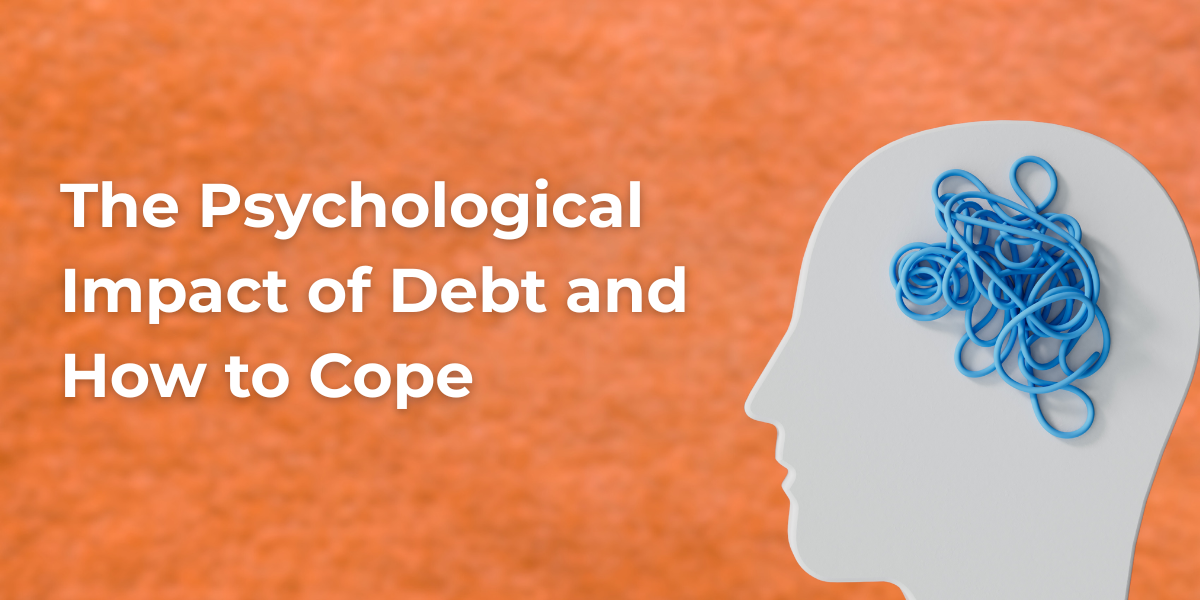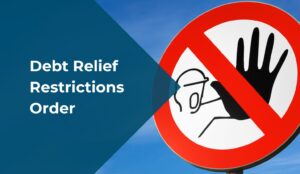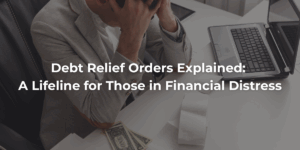Debt is more than just a financial burden; it’s an emotional one too. Whether it’s credit card bills, loans, or unexpected expenses piling up, the stress of owing money can take a serious toll on your mental health. Many people suffer in silence, feeling overwhelmed, anxious, or even depressed due to their financial situation. But you’re not alone, and there is help available. Understanding the psychological effects of debt and learning healthy ways to cope is a vital step towards regaining control of both your finances and well-being.
At Step Away Debt, we specialise in providing help with debt management, and we’re here to support not just your financial recovery, but your emotional one too.
The Emotional Toll of Debt
Debt can impact your mental health in various ways:
- Anxiety and Stress: Constant worry about paying bills and managing deadlines can lead to chronic stress, impacting sleep, appetite, and overall mood.
- Shame and Guilt: Many people feel ashamed about their debt, especially when comparing themselves to others. This can lead to social withdrawal and reduced self-esteem.
- Depression: Persistent financial struggles can cause feelings of hopelessness and even lead to depression.
- Relationship Strain: Financial stress is one of the leading causes of arguments in relationships. It can create tension, secrecy, or resentment between partners.
Why Debt Feels Overwhelming
Debt creates a cycle of stress and avoidance. The more overwhelmed you feel, the more likely you are to avoid the problem, which only makes it worse. Fear of creditor calls, letters, or declining credit scores can make it seem like there’s no way out. But taking the first step towards help with debt management can break that cycle and empower you to move forward.
Healthy Ways to Cope with Debt Stress
-
Talk about It
Opening up about your financial situation can lift a huge weight off your shoulders. Whether it’s with a friend, family member, or professional adviser, sharing your concerns can reduce shame and help you feel supported.
-
Seek Professional Help with Debt Management
Speaking to a qualified debt adviser can give you a clearer picture of your options. Solutions like debt management plans (DMPs), IVAs, or consolidation loans can make repayment more manageable and reduce creditor pressure.
-
Focus on What You Can Control
Start by organising your income and expenses. Set small, achievable goals. Even if it’s just paying off one small bill or sticking to a weekly budget, progress builds momentum.
-
Practice Self-Care
Managing debt is tough, so be kind to yourself. Exercise, sleep, nutrition, and mindfulness can help you cope with stress while you work on your finances.
-
Avoid New Debt
While it might be tempting to borrow more, especially in a crisis, it usually makes the situation worse. Instead, focus on living within your means and seeking advice before making financial decisions.
How Step Away Debt Can Help
At Step Away Debt, we offer free and confidential support to help you take control of your finances. Our tailored advice and accessible debt solutions are designed to reduce your financial pressure while giving you the emotional peace of mind you deserve.
Whether you’re dealing with unsecured loans, credit card debt, or council tax arrears, we’re here to guide you every step of the way, because help with debt management isn’t just about numbers, it’s about people.
Conclusion
Debt doesn’t define you, but how you respond to it can shape your future. The psychological impact of debt is real, but it’s also manageable with the right support and strategies. By reaching out, getting professional advice, and making mindful financial choices, you can step away from the stress and step toward a healthier, more secure future.
If you’re ready to take that step, contact Step Away Debt today. We’re here to help, judgment-free, confidential, and committed to your financial and emotional well-being.





